The other day on Twitter, I said, “I just can’t resist a good incest romance!”
I’m not sure why I didn’t predict the reactions I got to this comment. Because I am oblivious? Because I rarely think before I tweet? I expected crickets, and I got something more like, “Wha? Incest romance? Is that a thing? Are you drunk? I can’t read about incest at all, ever. Just, no.”
The conversation this statement came out of involved a book that I thought was a romance but it turns out is not, because it has a tragic ending.* So, I guess “incest love story” might have been more apt. Either way, such stories are a great big “NO THANK YOU” for many of the people I was talking to on Twitter, and I can understand that, I really can. I have brothers, and I don’t want to kiss them. It’s not that I find the idea of incest sexy in the abstract — I know it’s some people’s kink, which is cool and all, but it’s not mine. So why did I see this book and immediately decide I had to read it?
* I’m not going to link it — the book is unimportant, and I ended up abandoning it halfway through because it was dull. I know! Dull incest! So unfair.Here is what I decided. For me, the appeal of a brother-sister romance is the impossibility of it. What couple could be more doomed? And what is more compelling than reading about doomed love, hoping against hope that the author will rescue these poor bastards?
I read LaVyrle Spencer’s The Fulfillment with the same rapt fascination in the characters’ doomed-ness. The Fulfillment is an adultery book. A farmer, his wife, and his brother all live together on a late-nineteenth-century Minnesota farm. The husband has decided, after seven years’ marriage, that he is infertile, and he asks his brother if he will impregnate his wife. “No!” brother and wife say. “How appalling!”
Except . . . you know how this story goes. Once the idea is there, the brother and the wife can’t push it away. They have always liked each other. In many ways, their easy friendship is more fulfilling to them than the wife’s relationship with her husband. And so a romance blooms between them that ends, predictably, in pregnancy. But it’s not right! The wife can’t keep seeing the brother. She returns to her husband, promises fidelity, and leaves the brother miserably heartbroken. At this point, there is simply no way for the story to end happily for everyone. Everything is impossible.
This is the point at which I couldn’t put the book down.
I am enamored, too, of cross-class historical romance. When I was a historian, I studied working-class social and cultural history. I have a very real sense of the size of the gulf between the British aristocracy and the working class in the nineteenth century. And it’s for this very reason, I think, that I love the Pygmalion-type historical romances most of all when they beat me about the head with their impossibility. Judith Ivory’s The Proposition (rat catcher hero meets well-off spinster!), Laura Kinsale’s Flowers from the Storm (devoted Quaker heroine meets dissipated duke!), Meredith Duran’s A Lady’s Lesson in Scandal (poor thief heroine and scandalous aristo hero!) – these are books wherein the protagonists pretend to be someone they are not, and it sort of works, in the middle. But all the while the book reminds the reader over and over again, “Impossible, impossible, impossible.”
The problem with these impossible romances, for me, is that I nearly always hate the endings. Because they are romance novels, the novelist has to come up with a wand to wave that will make the impossible seem possible, and I never believe the magic. Even beautiful wand waving feels, in the end, like trickery.
And — here is the other thing — I don’t even know if I want to buy it. All the theories of how genre fiction works suggests that I am meant to be on the edge of my seat, biting my nails, weeping in agony at the black moment — and then the cathartic resolution of the plot is supposed to fill me with joy and satisfaction. But in my case, at least, it almost never works. The more impossible the book is, the less likely I am to believe its happy ending. But I don’t care. I don’t read impossible books for the endings. I read them for the impossible love in the middle.
So what is that about? Is it about my interest in love’s tenacity? Its brazen refusal to crop up only in the appropriate places at the appropriate times? Is it that love in these stories is so often the torch the characters carry in otherwise dismal lives? I think of Cormac McCarthy’s The Road, in which the father’s love for his son and the son’s love for his father are the only beauty in an unbearable world. Maybe I just want to watch love grow like a weed where it isn’t wanted. Maybe I hope it will be dandelion love, changing the color and texture of the landscape, more beautiful for being hardy and unwanted.
Only, I have no patience for Romeo and Juliet. My favorite part of Wuthering Heights is the bit at the beginning where the weirdo narrator is closed into the wooden bed, and also the dogs keep bothering him. I am not such a romantic soul that I seek out stories that venerate impossible love and then end tragically. I only seem to like the romancey ones, even though I hate the endings.
So I don’t know. I really don’t.
I’ve been thinking about all of this in relation to what I write, in which the conflict is never even remotely impossible. Indeed, the conflict is generally scaled so small in my books that I reliably get two-thirds of the way through the draft and then panic. Oh, God! There’s no conflict at all! This is not even a book. I give up. And sometimes reviewers call me out on this. They say, “This was not a heart-pounding read. It was kind of quiet. It was kind of slow.” Fair enough.
As a writer, my preference is for small-scale, stupid human conflict — for characters who make the same sorts of mistakes I have made. People who don’t want to talk about their feelings. People who are afraid to take risks, afraid to rock the boat, afraid to make themselves vulnerable. I once wrote a buddy romance in which the entire conflict was that the heroine didn’t want to tell the hero she was into him, and vice versa. They got married in Vegas, had a lot of excellent sex, and got along like gangbusters — all while refusing to talk about their feelings at all. Because risk! Scary! My agent read it, and she was like, “Wait, why aren’t they just talking about this like normal people?” And I was all, “But normal people don’t like to talk about feelings!”
Ha. Yes. That one’s still sitting on my hard drive.
The hero of my latest book, Flirting with Disaster, is afraid to talk to the heroine because he thinks she’ll make his adolescent stutter come back. (He’s right.) He’s hanging around his hometown because his mother died and he’s so incapable of dealing with everything he feels about her that he ends up squatting in her house instead of packing it up. The urn with her ashes in it sits on the kitchen countertop next to the Peet’s Coffee. This guy has issues, but there’s nothing impossible about them. He just has to open his mouth. He just has to pack his mom’s coats up and give them to Goodwill.
I write these sorts of stories because I love the arc of them. I love thinking about how love can help us take small but important steps as human beings toward more fulfilling, more honest, more open lives. This is the kind of happy ending I believe in. It’s the argument I know how to make, the story I have to tell. It’s a good story, I think. People seem to like it.
But those other stories — the impossible ones that I never imagine writing, myself — they have a beauty that lures me back time after time, pressing my nose against the glass, looking through the window, rapt.
Show me a love that’s impossible. Wave your wand and make me believe in magic. Convince me.
I don’t know what to make of it.

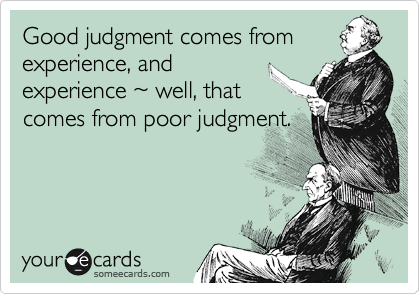 Because books sit on shelves with thick fancy binding, they have a sense of permanence. Digital books are a little different, but the same principles apply. Once you put the book out there, it’s done. Which, to me, is a certain acknowledgement against perfection. It’s not that my first book won’t be perfect or that my second one won’t be, it’s that they will never be. Cannot be. Because they’re not a culmination but a snapshot of where I am at the time. It can’t represent what I’ll experience or think up tomorrow any more than I can predict next week’s lottery numbers.
Because books sit on shelves with thick fancy binding, they have a sense of permanence. Digital books are a little different, but the same principles apply. Once you put the book out there, it’s done. Which, to me, is a certain acknowledgement against perfection. It’s not that my first book won’t be perfect or that my second one won’t be, it’s that they will never be. Cannot be. Because they’re not a culmination but a snapshot of where I am at the time. It can’t represent what I’ll experience or think up tomorrow any more than I can predict next week’s lottery numbers.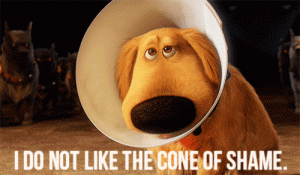
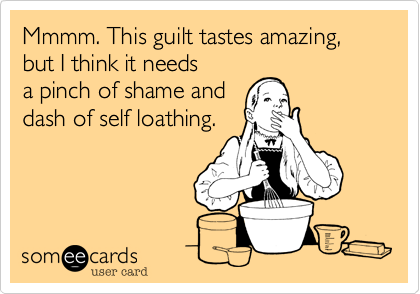 Brené Brown researches shame, which has got to be among the strangest jobs ever. If you haven’t seen her
Brené Brown researches shame, which has got to be among the strangest jobs ever. If you haven’t seen her 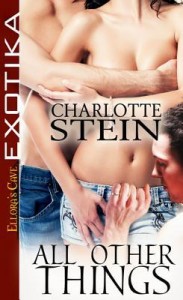
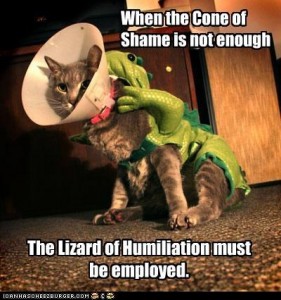 Once I started to think about this use of shame in modern romance writing, I couldn’t stop thinking of examples, most of them from the last decade or so (not necessarily just contemporary romance or erotic romance – Sherry Thomas and Courtney Milan, about whose historicals I’ve often flailed here, both excel at exploring how characters mediate their own shame). And how different these books are, how much more willing to explore and ultimately accept potential ugliness in protagonists, than the standard “shameful-act-is-shameful-and-must-be-atoned-for-before-love-is-earned” model of so, so many romance books that have gone before and will surely come after. This may seem harshly realistic, a quality we don’t always associate with romance, because in the real world shame works this way. It doesn’t usually lead to atonement and true love…in reality we are going to continue googling for XXX-rated Harry Potter Giant Squid stories even if we do find love, so instead of feeling like we’re bad people for enjoying weird stuff, it makes sense to find love with somebody whose response to that tendency is, “Filch/Squid is my OTP! Mah fic recs, let me show u them!” But in a way it’s also deeply romantic, this notion that we can find a love who not only loves us for ourself but embraces what we might otherwise think of as the worst in ourselves. Maybe it’s the new romantic.
Once I started to think about this use of shame in modern romance writing, I couldn’t stop thinking of examples, most of them from the last decade or so (not necessarily just contemporary romance or erotic romance – Sherry Thomas and Courtney Milan, about whose historicals I’ve often flailed here, both excel at exploring how characters mediate their own shame). And how different these books are, how much more willing to explore and ultimately accept potential ugliness in protagonists, than the standard “shameful-act-is-shameful-and-must-be-atoned-for-before-love-is-earned” model of so, so many romance books that have gone before and will surely come after. This may seem harshly realistic, a quality we don’t always associate with romance, because in the real world shame works this way. It doesn’t usually lead to atonement and true love…in reality we are going to continue googling for XXX-rated Harry Potter Giant Squid stories even if we do find love, so instead of feeling like we’re bad people for enjoying weird stuff, it makes sense to find love with somebody whose response to that tendency is, “Filch/Squid is my OTP! Mah fic recs, let me show u them!” But in a way it’s also deeply romantic, this notion that we can find a love who not only loves us for ourself but embraces what we might otherwise think of as the worst in ourselves. Maybe it’s the new romantic.



















